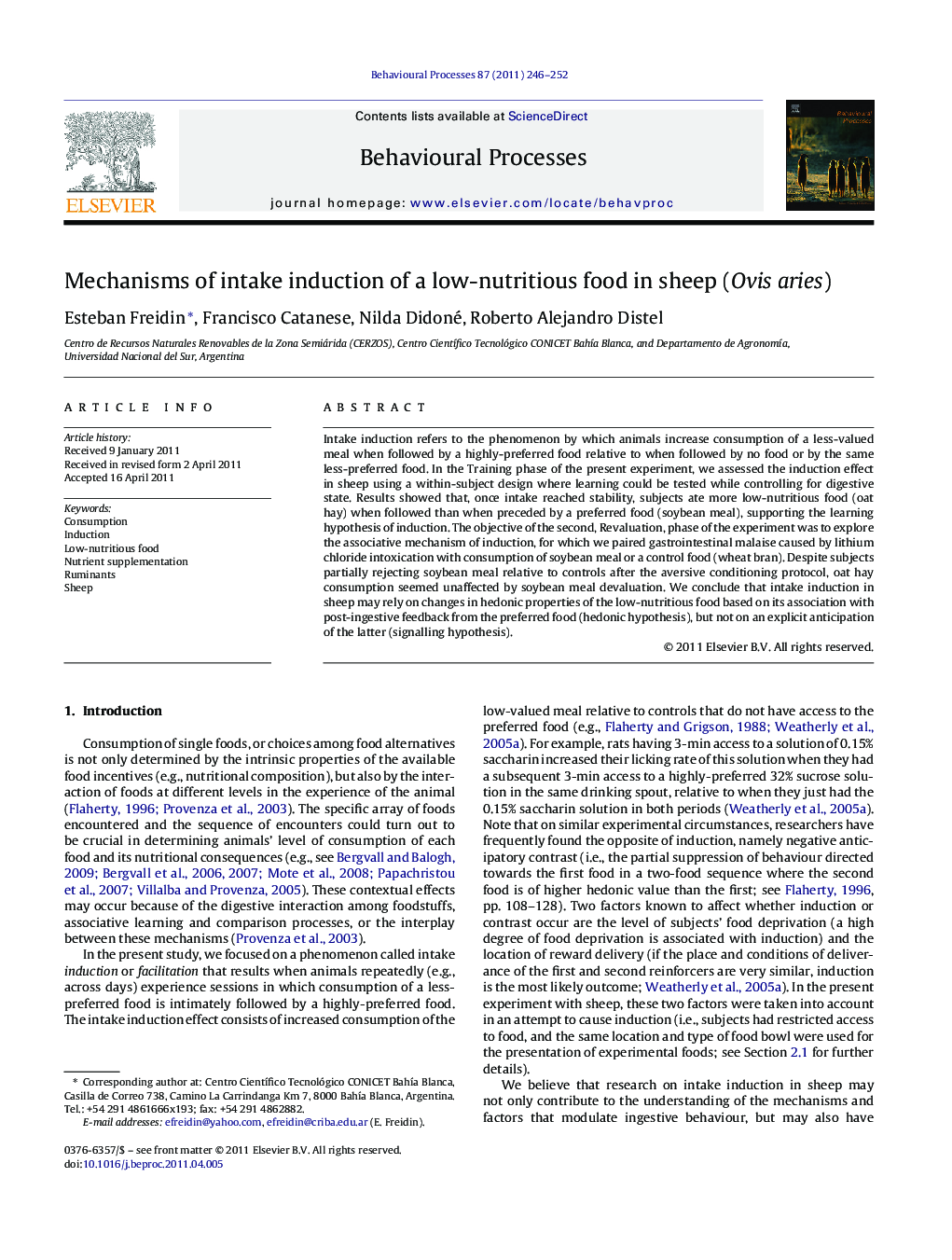| Article ID | Journal | Published Year | Pages | File Type |
|---|---|---|---|---|
| 2427202 | Behavioural Processes | 2011 | 7 Pages |
Intake induction refers to the phenomenon by which animals increase consumption of a less-valued meal when followed by a highly-preferred food relative to when followed by no food or by the same less-preferred food. In the Training phase of the present experiment, we assessed the induction effect in sheep using a within-subject design where learning could be tested while controlling for digestive state. Results showed that, once intake reached stability, subjects ate more low-nutritious food (oat hay) when followed than when preceded by a preferred food (soybean meal), supporting the learning hypothesis of induction. The objective of the second, Revaluation, phase of the experiment was to explore the associative mechanism of induction, for which we paired gastrointestinal malaise caused by lithium chloride intoxication with consumption of soybean meal or a control food (wheat bran). Despite subjects partially rejecting soybean meal relative to controls after the aversive conditioning protocol, oat hay consumption seemed unaffected by soybean meal devaluation. We conclude that intake induction in sheep may rely on changes in hedonic properties of the low-nutritious food based on its association with post-ingestive feedback from the preferred food (hedonic hypothesis), but not on an explicit anticipation of the latter (signalling hypothesis).
► Animals may increase intake of a less-nutritious meal when followed by a highly-preferred food. ► Associative learning presumably underlies this intake induction but digestive complementarity between subsequent foods could be confounded. ► In detriment to the digestive hypothesis, we showed that sheep consumed more of a low-nutritious food when followed than when preceded by a highly-preferred nutrient supplement. ► When the nutrient supplement was devaluated, sheep still preferred the flavour of the low-nutritious food used to cuing the supplement during training. ► This finding suggests that the explicit memory of the supplement was not involved in the intake induction.
